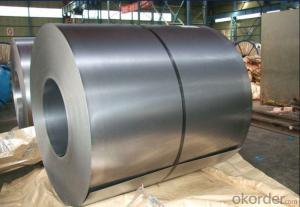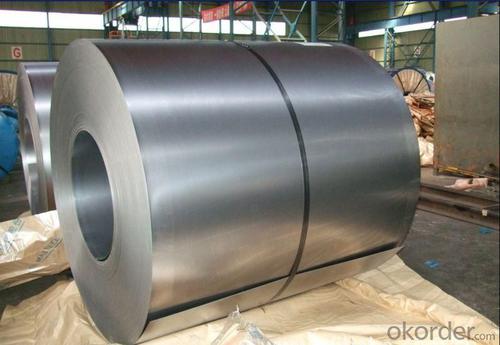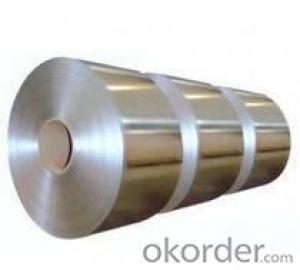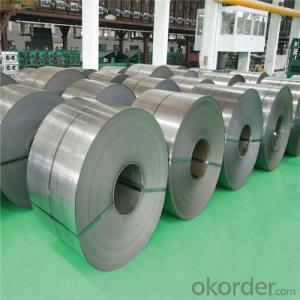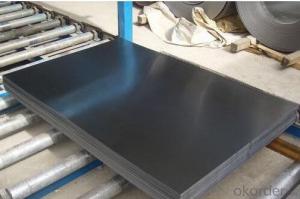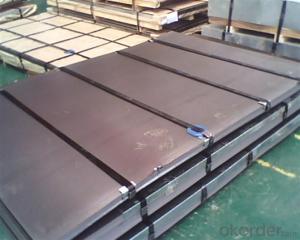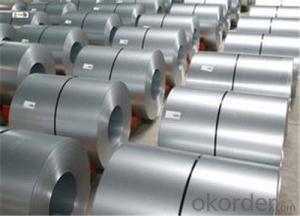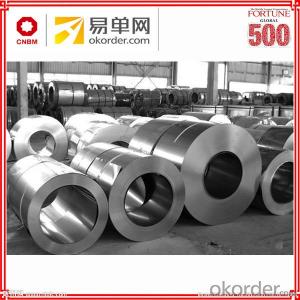Cold Rolled Steel Coil Used for Industry with Our Kind and Best Price
- Loading Port:
- Tianjin
- Payment Terms:
- TT OR LC
- Min Order Qty:
- 25 m.t.
- Supply Capability:
- 9000 m.t./month
OKorder Service Pledge
OKorder Financial Service
You Might Also Like
Pure Cold Rolled Steel Coil Used for Industry
1.Structure of Cold Rolled Steel Coil Description
Cold rolling means that hot rolled steel coil is rolled below recrystallization temperature after pickling, and its finished product is full hard coil. The thin gauge cold rolled steel sheet and strip steel have advantages of low surface roughness, high dimension accuracy and good mechanical properties etc, and which have been widely used in auto manufacturing, home appliance, architecture, aviation, precision instrument, hardware and enameling industry etc.
2.Main Features of the Cold Rolled Steel Coil
•High Purity
•Easy control and operation
•High strength
•Fast melting
•Competitive price
•Best Service
3. Cold Rolled Steel Coil Images
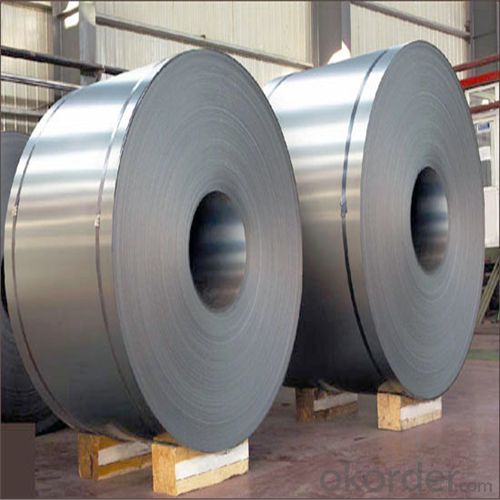
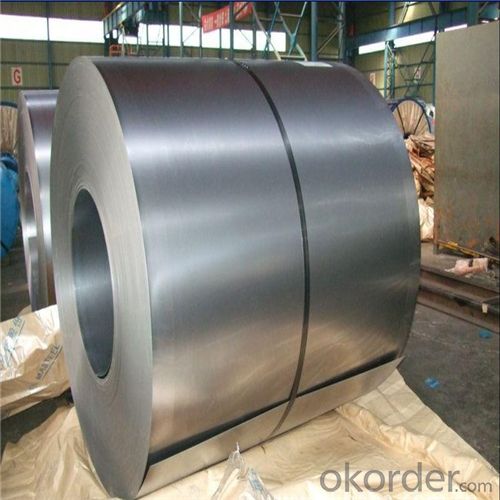
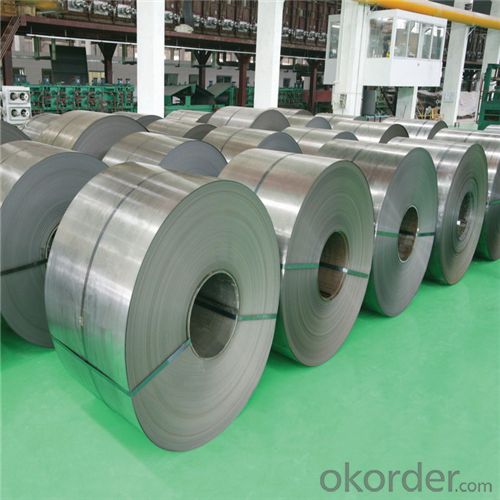
4. Cold Rolled Steel Coil Specification
COLD ROLLED STEEL COIL | |
Thicknenss | 0.10mm-4.00mm |
Width | 600mm-2000mm |
Sheets length | 1200-6000mm |
Coil inner diameter | 508-610mm |
Surface treatement | matt finish/bright finish,oiling/dry, bright anneal/black anneal |
Coil weight | 3-5t |
5.FAQ of Cold Rolled Steel Coil
We have organized several common questions for our clients,may help you sincerely:
①How about your company?
A world class manufacturer & supplier of castings forging in carbon steel and alloy steel,is one of the large-scale professional investment casting production bases in China,consisting of both casting foundry forging and machining factory. Annually more than 8000 tons Precision casting and forging parts are exported to markets in Europe,America and Japan. OEM casting and forging service available according to customer’s requirements.
②How to guarantee the quality of the products?
We resolutely put an end to unqualified products flowing into the market. At the same time, we will provide necessary follow-up service assurance.
③How long can we receive the product after purchase?
In the purchase of product within three working days, We will arrange the factory delivery as soon as possible. The pecific time of receiving is related to the state and position of customers.Commonly 7 to 10 working days can be served.
We can supply customers' with different specifications of the highest quality and lowest price.
Sincerely welcome to contact us for the future details if any item interest you ,and we will make every effort to assure that your requirements will be satisfied ,and we hope to establish long-term business relations with you on the basis of the equality and mutual benefit.
we are waiting for your email.
- Q: How are steel coils inspected for formability using forming tests?
- Steel coils are inspected for formability using forming tests by subjecting them to various forming processes such as bending, stretching, or deep drawing. These tests help evaluate the ability of the steel to undergo deformation without cracking or tearing. The formed samples are then inspected for any defects or imperfections, such as surface irregularities, fractures, or wrinkling. This allows manufacturers to assess the quality and suitability of the steel coils for specific applications, ensuring they meet the required standards of formability.
- Q: What are the different types of steel coil handling equipment used during processing?
- There are several types of steel coil handling equipment used during processing, including coil cars, coil upenders, coil tilters, coil transfer cars, coil grabbers, coil lifters, and coil reels. These machines are designed to efficiently handle and maneuver steel coils of various sizes and weights, ensuring safe and smooth operations during the processing stages.
- Q: Where can I find a discount online for Stainless Steel Magnetic Knife Rack
- Hi okorder /
- Q: How are steel coils inspected for surface cleanliness?
- Steel coils are inspected for surface cleanliness through a variety of methods including visual inspection, magnetic particle inspection, and ultrasonic testing. Visual inspection involves visually examining the surface for any visible contaminants or defects. Magnetic particle inspection uses magnetic fields and particles to detect surface defects such as cracks or flaws. Ultrasonic testing uses high-frequency sound waves to detect any subsurface defects or irregularities. These inspection methods ensure that the steel coils meet the required standards of cleanliness and quality.
- Q: How are steel coils inspected for elongation using elongation testers?
- Steel coils are inspected for elongation using elongation testers by first selecting a representative sample from the coil. This sample is then mounted onto the tester, which applies a controlled force to stretch the steel. The elongation tester measures the change in length of the sample as it is stretched, allowing the calculation of the elongation percentage. This data is crucial for evaluating the steel's ductility and mechanical properties, ensuring it meets quality standards and can withstand various applications.
- Q: What dangers were there for the steel workers in Pittsburgh under Carnegie?
- Same as other steel plants, getting crushed by falling steel, getting burned by hot metal etc
- Q: Can steel coils be coated with anti-graffiti materials?
- Yes, steel coils can be coated with anti-graffiti materials. These materials create a protective layer that can prevent graffiti from adhering to the surface, making it easier to remove any unwanted markings.
- Q: I'm not sure.Alloy stainless steel 308 series.
- There are potential risks in some cookware materials. Aluminum and Teflon-lined pots, pans and bakeware are safest when kept in good condition and used properly. Mixing steel with chromium and nickel (18/8 stainless steel is 18% chromium and 8% nickel while 18/10 has 10% nickel) produces a corrosion resistant steel that is both hard wearing and easy to clean. Stainless steel cookware is considered one of the best and safest choices in cookware.
- Q: Help please.What atoms are there in steel?Like water is equals to 1 Oxygen atom + 2 Hydrogen atoms.Thnx 4 d help.
- Steel is an alloy consisting mostly of iron, with a carbon content between 0.2 and 1.7 or 2.04% by weight (C:1000–10,8.67Fe), depending on grade. Steel is Fe(iron) and Carbon alloy. These are the atoms in certain ratio that make up steel. Its not a molecule but alloy.
- Q: How are steel coils used in the manufacturing of intake manifolds?
- Steel coils are typically used in the manufacturing of intake manifolds as the primary material for forming the manifold's structure. These coils are shaped and cut into specific dimensions to create the necessary components, such as runners and plenums, which help regulate the flow of air and fuel mixture into the engine. The steel coils are often subjected to additional processes, including welding, machining, and surface treatments, to ensure the final intake manifold meets the required specifications and performance standards.
Send your message to us
Cold Rolled Steel Coil Used for Industry with Our Kind and Best Price
- Loading Port:
- Tianjin
- Payment Terms:
- TT OR LC
- Min Order Qty:
- 25 m.t.
- Supply Capability:
- 9000 m.t./month
OKorder Service Pledge
OKorder Financial Service
Similar products
Hot products
Hot Searches
Related keywords
